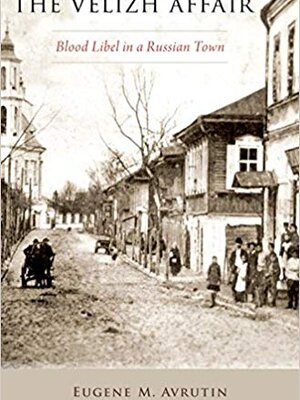
On April 22, 1823, a three-year-old boy named Fedor finished his lunch and went to play outside. Fedor never returned home from his walk. Several days later, a neighbor found his mutilated body drained of blood and repeatedly pierced. In small market towns, where houses were clustered together, residents knew each other on intimate terms, and people gossiped in taverns, courtyards, and streets, even the most trivial bits of news spread like wildfire. It did not take long before rumors began to emerge that Jews murdered the little boy.
The Velizh Affair reconstructs the lives of Jews and their Christian neighbors caught up in the aftermath of this chilling criminal act. The investigation into Fedor's death resulted in the charging of forty-three Jews with ritual murder, theft and desecration of Church property, and the forcible conversion of three town residents. Drawing on an astonishing number of newly discovered trial records, historian Eugene M. Avrutin explores the multiple factors that not only caused fear and conflict in everyday life, but also the social and cultural worlds of a multiethnic population that had coexisted for hundreds of years.
This beautifully crafted book provides an intimate glimpse into small-town life in eastern Europe. The case unfolded in a town like any other town in the Russian Empire where lives were closely interwoven, where rivalries and confrontations were part of day-to-day existence, and where the blood libel was part of a well-established belief system.